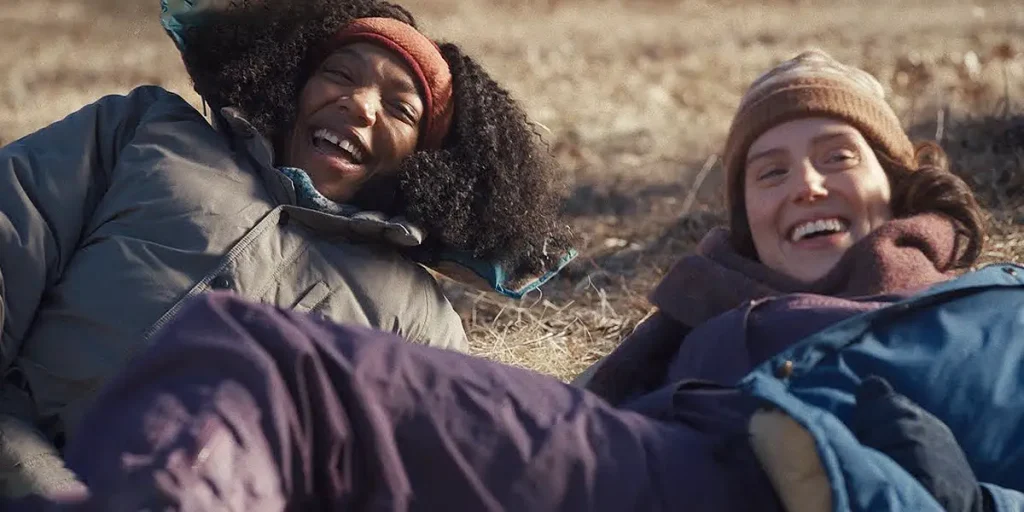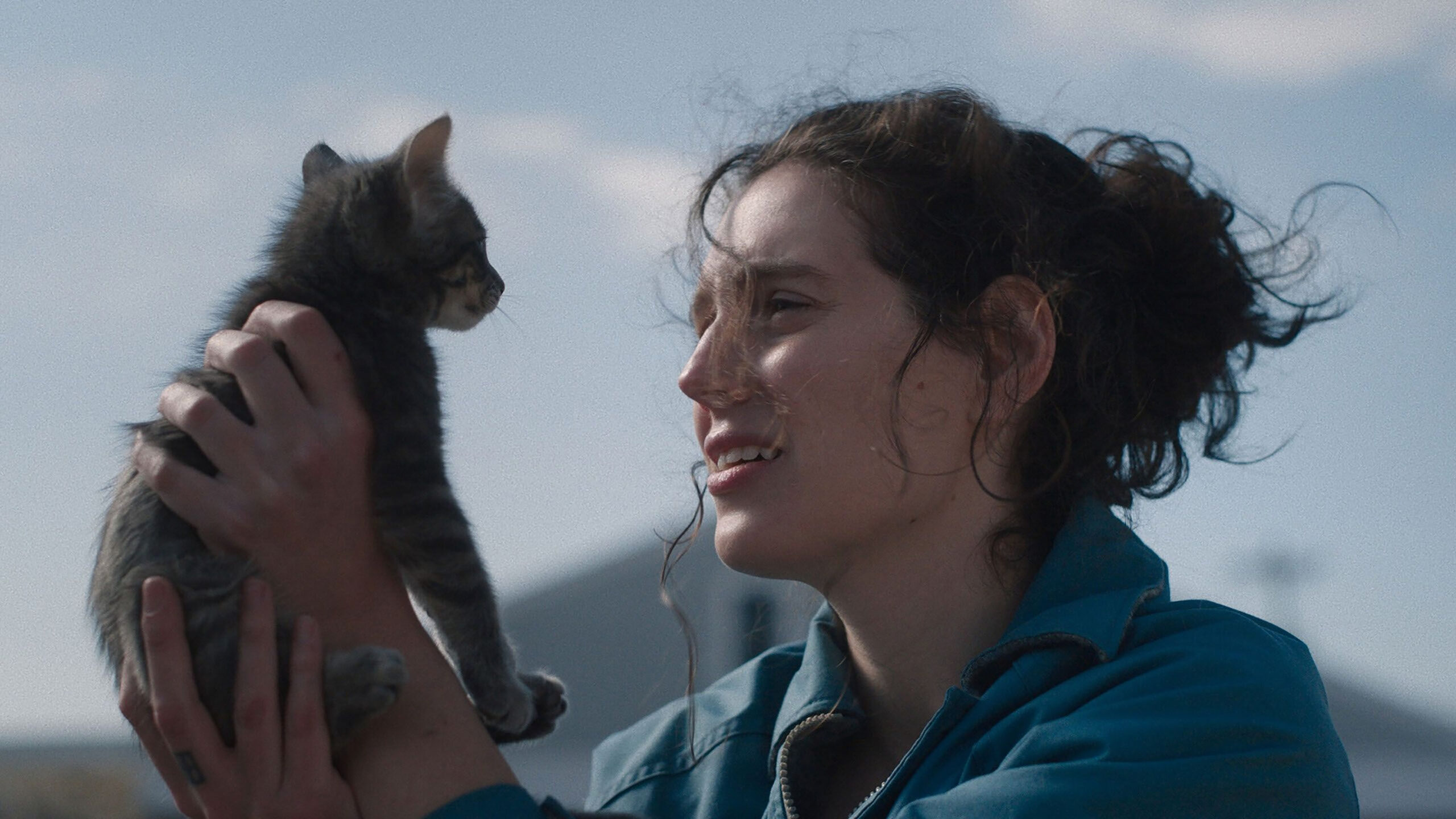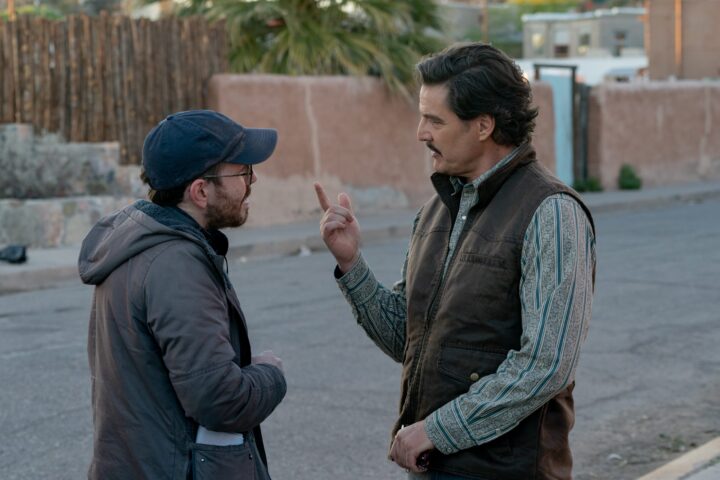Writer-director Eva Victor’s Sorry, Baby, winner of this year’s Sundance Film Festival screenwriting prize, is a deceptively modest indie, one made in spare style but delivering a quietly powerful punch in confronting the long-term fallout of sexual assault.
Trauma splits life into a before and after—and the “after,” shaped by the slow, often invisible processing, still demands to be lived, even as the world feels altered and uncomfortable. That’s the thrust of Sorry, Baby, and Victor, a Northwestern University acting grad making her feature debut, structures her debut in four non-linear chapters across which a life unfolds with sharp emotional clarity.
When we first meet Agnes (Victor), she’s welcoming longtime bestie Lydie (a luminous Naomi Ackie) for a weekend at her secluded New England cabin. While Lydie has followed the familiar arc of adulthood—love, commitment, family—Agnes remains somewhat suspended in time, staying put in the pair’s grad school cabin abode.
Both actors create a believable ease between the two women; a comfort that feels totally lived-in. Whether they’re sprawled on the couch in sweats or out walking wooded trails, they fall into that kind of easy rhythm you can only have with someone who really knows you, and Lydie is perhaps the only one to know what happened to Agnes some years earlier.
Nothing seems obviously wrong; Agnes is more or less where she was in college, aside from now teaching English at a nearby university. But as the film unfolds, we’re taken back to the experience that fractured her: an unwanted advance and later an assault by her professor and thesis advisor—what she calls, almost offhandedly, “the very bad thing.” It’s never dramatized in a big way, but its impact is felt in everything that follows.

What follows is the stuff of life—earning a coveted job as an English professor, inching toward a connection with a shy neighbor (Lucas Hedges)—but no matter the activity, the world feels slightly off. Agnes seems less engaged, a dull sheen cast over the youthful verve and spirit we saw earlier in the film. Because Victor is such an effervescent performer—she really could play anything from comedy to drama, classics to contemporary—that dulling is felt all the more by the audience.
None of this is to say Sorry, Baby is a glum experience; it’s not. The film carries an offbeat sense of humor, including two sharply drawn bureaucratic encounters that use pointed black comedy to unsettling effect. In the first, a detached doctor performs a post-assault exam, tossing out procedural lines with little empathy. He scolds Agnes for not coming in sooner for a rape kit, then asks, “Do you feel safe now?”—as if the question itself were some form of comfort; the disconnect between the words and the delivery are the point.
In the second, and broader, scene, two female university HR reps listen to Agnes’s report with a kind of institutional politeness. Their responses are couched in policy-driven, rehearsed language—phrases like “We’re all women” are intended to sound comforting, but are ultimately empty, making clear that the school is more interested in liability than care.
Both moments show how easily survivors can be let down by systems meant to be on their side. It’s a credit to Victor’s control of tone that we can laugh at the absurdity without losing sight of the seriousness underneath. A lesser film might have leaned into melodrama instead. Late in the film, the fine veteran character actor John Carroll Lynch shows up as a sandwich shop proprietor who unexpectedly offers genuine support.
The film isn’t perfect—there’s a classroom discussion of Lolita that feels a little too on-the-nose, and a competitive friend character (Kelly McCormack) that’s cartoonishly drawn. But those are minor bumps in a largely thoughtful picture.
Victor ends Sorry, Baby on a moment of recognition so simple and plainspoken that it quietly reframes everything that’s come before (and after). It doesn’t wrap things up. It just allows something to shift. And that, in its own way, feels like grace for Agnes, one of the movie year’s most enigmatic creations; she may not get much compassion from the world, but she does from us.
3 stars



